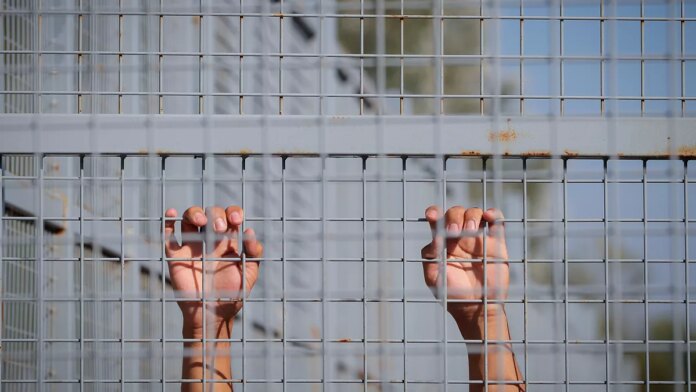
ADVERTISEMENT
The pact includes provision for a mechanism that allows for the annual relocation of at least 30,000 migrants. Countries that choose not to accept and process asylum applications will be obliged to pay a fee of €20,000 for each pending application or to take other solidarity measures.
Member States have three options to fulfil their obligations: through relocation of migrants, financial contributions or operational support, for example equipment, staff or logistics.
At the same time, the pact stipulates that countries under particular migratory pressure, for example due to a large influx of refugees, may be granted partial or full exemption from their solidarity obligations.
Poland a test case
One of the most debated countries at the moment is Poland. Local media in the cuntry recently reported that Poland could be exempted from the obligation to relocate migrants and from part of the financial obligations under the pact, as well as having operational relief.
During a press conference at RFK Racibórz on Tuesday, Prime Minister Donald Tusk addressed these reports:
“I have known for a long time that Poland will not be included in the relocation programme and no one will send us migrants,” he said.
The Prime Minister added: “As long as I am in charge of governing in Poland, regardless of what the further stages of the migration pact look like, Poland has ways and will not accept any migrants in the relocation mechanism. Not a single migrant. And the topic is closed from our point of view.”
Minister of Internal Affairs and Administration Marcin Kierwiński also commented on the reports.
“Poland will be exempt from the migrant relocation mechanisms for many years,” he said in Luxembourg during the European Union Justice and Home Affairs Council.
Former interior and administration Minister in Mateusz Morawiecki’s government and now PiS MEP Mariusz Kaminski addressed the issue on his profile on the social media site X.
He said that the systemic exclusion of Poland from the migration pact “is out of the question.”
“The issue of the migration pact is currently the subject of fierce friction in the European Union. No decisions have been made, there is no question of Poland’s systemic exclusion,” Kaminski said.
Government spokesperson Adam Szłapka told TVP Info on Tuesday that the provisions of the migration pact were drafted while Mateusz Morawiecki was still in government.
As he stated “it is actually a migration pact named after Mateusz Morawiecki.” He also said that Poland would be exempted from the relocation of migrants permanently and not just for one year.
However, there is still no official position from the European Commission.
Poland argues that it has taken in millions of refugees since the beginning of Russia’s invasion of Ukraine, which puts it in a unique position and deserves the status of a country “under migration pressure.”
Can a country be exempted from its obligations?
The European Commission (EC) stresses that EU law does not provide for the complete exemption of a country from the pact.
Rather, it implies the possibility of easing obligations for example less relocation of migrants or fewer financial or operational obligations, if a Member State is considered to be “under migration pressure.”
The criteria that the EU will use to recognise such a country’s status are not clearly presented. The number of refugees, temporary protection, the situation at the borders are all elements that may be taken into account.
If a decision on some form of exemption were formally adopted, it could mean that a country would not have to accept migrants, or would have fewer people to accept.
It could be exempt from financial penalties or fees related to non-compliance with the relocation obligation, or have a reduced rate. It could also be exempt from the obligation to provide equipment, personnel or participate in operational activities.
In theory, it could also be exempt from certain procedural requirements, such as screening obligations. This is less likely, as procedural issues are more strongly regulated by law.
There is a risk that decisions of this kind may be perceived as a precedent, meaning that other countries will expect similar concessions. This could lead to negotiations, protests or a legal dispute if the EC or other countries have different interpretations.
Who else besides Poland can apply for an exemption?
So far, countries that are particularly burdened by migration such as Greece, Spain and Italy are most often mentioned in the context of a possible exemption.
Countries hosting large numbers of refugees fleeing war, like Poland, shows that such a criterion can be crucial.
For the time being, however, there is no officially confirmed list of countries that can be formally exempted.
Doubts and controversy
On 15 October, the European Commission was supposed to present a list of countries under so-called migration pressure and define a solidarity pool for next year.
However, unofficial media findings suggest that the Commission will not consider the report on the migration pact this week.
EU Commissioner for Home Affairs and Migration Magnus Brunner was due to present a report on Wednesday on the migration situation in individual EU countries and the resulting solidarity commitments.
Asked at a press conference after Tuesday’s meeting of Ministers in Luxembourg whether the growing opposition from Member States could block the plan from even starting, Brunner stressed that it made little difference whether the European Commission presented the document a few days earlier or later.
As reported by RMF FM, Commission spokesperson Markus Lammert said he would “inform when there is a new publication date.”
This delay raises questions about Poland’s fate in the context of the EU’s “migration solidarity” mechanism, especially about the chances of being exempted from migrant relocation or financial obligations.
As of today, there are no formally confirmed lists of countries that will be exempted from solidarity obligations. Poland is the most frequently mentioned case that may be granted the status of “country under migration pressure.”
Source link






